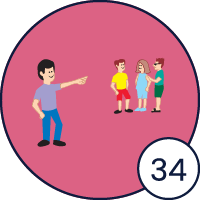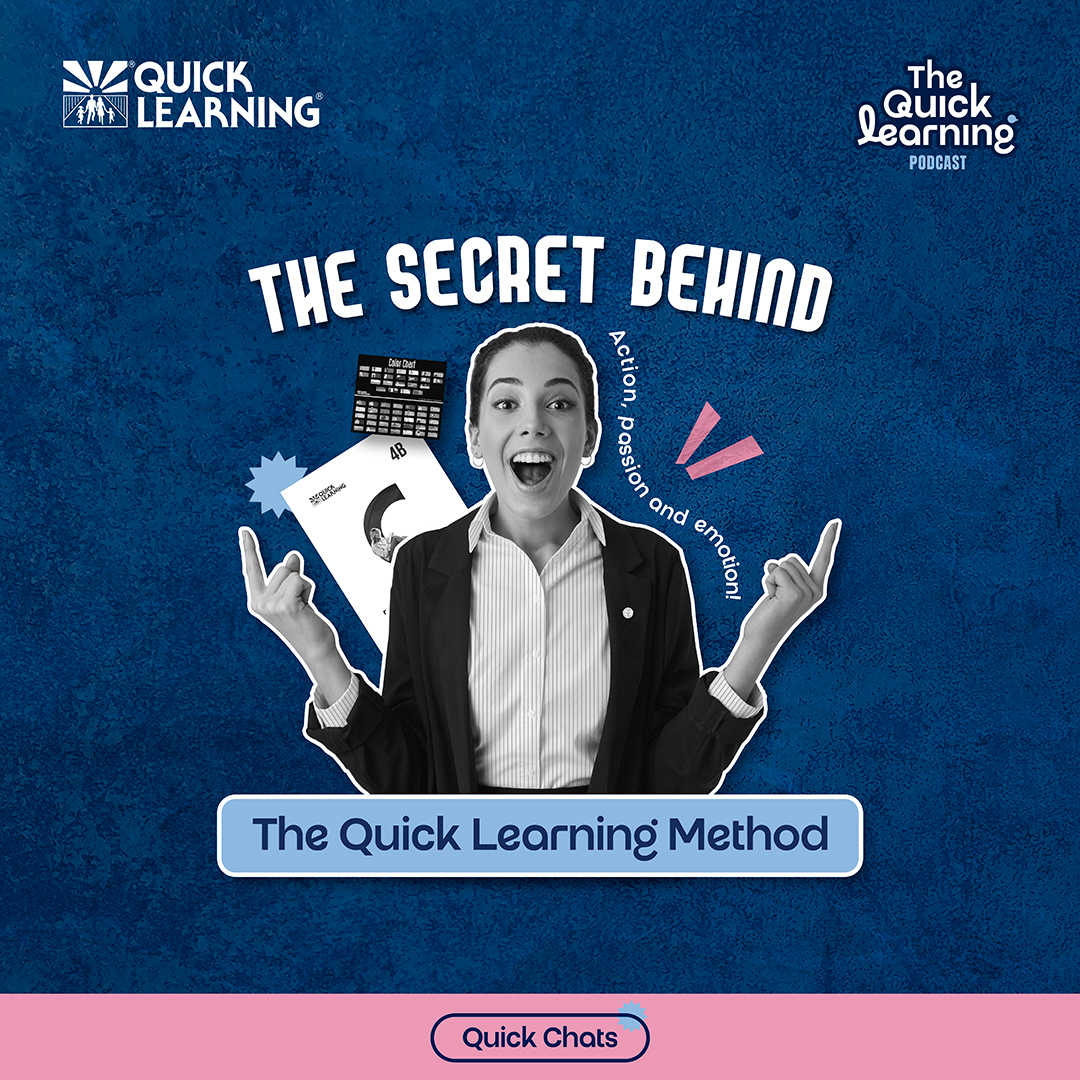
Right, so today we’re gonna dive into something that I think a lot of us have probably experienced and… that’s the challenges of learning a new language as an adult.

Yeah.

And, you know, we’ve got quite a few messages from listeners about this.

Like, what if there's a way to actually make our brains happy while we learn English?

Well, that's exactly what we're diving into today.

Get ready to explore the world of Quick Learning where, get this, fun isn't just a side benefit. It's like the core strategy.

It is. They're all about making language learning, well, fun again, because… let's face it, traditional methods— they can be a bit of a drag sometimes.

You said it. So, no more, like, dusty textbooks and flashcards.

They ditch those? Yeah.

Yeah.

They're all about tapping into your brain's natural learning power.

Okay, so how do they actually do that?

They call it the natural approach. And it's all about recreating the way we learned our first language.

So less about memorizing grammar rules and more about just, like, diving into conversations.

Think about it. You didn't learn your native language by studying textbooks.

Well, no. It was all about, like, mimicking my parents and just trying to communicate.

Exactly. Quick Learning recreates that immersive environment.

Makes sense. But does this, like, fun approach actually work? I mean, is there, like, actual science behind it?

Oh, absolutely. There's a kind of research showing that this kind of immersive learning lights up the language centers in our brain.

So it's not just a feel good thing, it's actually like helping our brains form connections faster.

Precisely. And it engages different parts of the brain, too. Not just the ones focused on memorization.

Okay, so I'm intrigued, but how does this play out in, like, a real learning setting?

Well, that's where the super cool approach to role playing comes in.

Role playing— hold on. Are we talking about, like, pretending to order a croissant from a grumpy Parisian baker? Because I'm in.

That's exactly what I'm talking about.

Seriously, that's part of the learning process.

It's not just about being silly, though, of course. By stepping into different roles and scenarios, you're internalizing the language in a way that goes way beyond just memorizing words.

So instead of just reciting verb conjugations, I'm, like, using them naturally in a conversation.

Exactly. And because you're engaged and having fun, those grammar rules and vocabulary words, they stick with you.

Okay, I have to admit, I'm starting to see how this could be way more effective than my high school Spanish classes. What else makes Quick Learning so unique?

They have this really cool tool called the Color Chart, and let me tell you, it's a game changer, especially for pronunciation.

A Color Chart. All right. My curiosity is officially piqued. Tell me more about this.

So, imagine this: Each sound in English is assigned a specific color.

So instead of just hearing a sound, I'm, like, seeing it too.

Exactly. And that creates a much stronger link in your brain, especially for visual learners. It's like a superpower for your memory.

I can see how that would be super helpful, especially for those sounds that are, like, totally foreign to us.

Absolutely.

Like the  sound. That one always trips me up.
sound. That one always trips me up.

Exactly. That's the one. So many people struggle with that sound. Especially if it doesn't exist in their native language.

Yeah, it's like my tongue just doesn't know what to do with itself.

And that's where the Color Chart comes in. Instead of just trying to imitate this weird sound you've never had to make before, you're associating it with acolor.

Oh, that's actually really clever. I never would have thought of that.

It's all about tapping into those visual learning pathways in your brain, creating those connections.

I love how Quick Learning is all about, like, working with our brains, not against them.

Right. It's about making language learning feel natural and intuitive.

Okay, so we've talked about the natural approach, the role playing, the Color Chart. All super cool stuff. But how does Quick Learning prepare you for, like, real life situations? You know, actually using English out in the wild.

That is the million dollar question, isn't it?

Yeah.

And it's another area where Quick Learning really shines. They're all about teaching authentic– everyday– English.

So no more of those awkward textbook dialogs that, like, nobody actually says in real life.

Exactly. Think about the last time you traveled to a new place or had to use English outside of a classroom.

Okay. Let's see. Ordering food… Definitely asking for directions and trying to, like, decipher the Wi-Fi password from a busy barista. Those are always fun.

Exactly. And those are the kinds of scenarios that Quick Learning focuses on. They give you the tools and the confidence to handle those everyday interactions.

So it's less about memorizing a bunch of random vocabulary words and more about like, learning how to actually use them in a way that feels natural.

Precisely. It's about bridging that gap between textbook English and real world fluency.

I got to say, this is all starting to sound pretty amazing. It's like they've taken all the frustrating parts of language learning and just, like, flipped the script.

And they've backed it up with solid research, too. They're not just throwing things at the wall and seeing what sticks. They're really intentional about their methods.

It's like they're saying “hey, your brain is actually wired for this. You just need the right support and guidance”.

Exactly. And that's a big part of the Quick Learning experience. They create this incredibly supportive and engaging learning community.

Okay. Tell me more about that. What is it about their approach that fosters that sense of community?

Well, it starts with the teachers. They're not just lectures. They're more like facilitators or guides.

Oh, so more like a language coach.

Exactly. They encourage collaboration, they're not afraid to get creative, and they know that laughter is a key ingredient in the learning process.

Because when you're having fun, you're relaxed, you're open, and your brain is just, like, way more receptive to new information, right?

100%. And speaking of being relaxed, they're big on creating a safe space for mistakes.

Because, let's be real, mistakes are going to happen.

They're inevitable. And instead of shaming students for making mistakes, Quick Learning embraces those moments as valuable learning opportunities.

Which reminds me of, like, every Spanish test I ever took in high school, the fear was real.

Oh, I feel you. That's why creating a supportive and encouraging learning environment is so important. It's about taking the pressure off and allowing students to experiment and learn at their own pace.

So it's less about being perfect and more about just, like, enjoying the journey.

Exactly. It's about reframing the whole language learning experience as something that's fun, rewarding, and ultimately life changing.

Okay, I'm so here for this. So we've talked about the natural approach, the role playing, the Color Chart, the focus on authentic communication, the importance of community and creating that safe space for learning. Did we miss anything? I think we've pretty much covered the core stuff, but I feel like there's something else, like a bigger picture thing happening with Quick Learning, wouldn't you say?

Totally. It's not just about, like, acquiring a skill set. It's about connecting with the world in a whole new way, you know?

Right. Like that feeling when you land in a new country and, yeah, it's a little scary, maybe, but you can actually talk to people, experience the culture.

That's the magic of it. And it opens up so many doors, right? Travel, work, relationships, even just understanding that foreign film without subtitles.

This whole deep dive has been seriously eye opening. They've made language learning… Dare I say it? Cool. Like, I kind of want to dust off my old Spanish textbook now.

I love that. It's all about rediscovering that joy of learning, you know? That we often lose sight of as we get older.

So to wrap things up, I have a little thought experiment for our listeners. Imagine, just for a second, that fast forward button a few months from now, you're fluent, you're confident, English is no longer this thing you're trying to conquer. What changes in your life? What amazing things become possible?

Doors swing open, right? Because language learning, it's more than just vocabulary and grammar. It's about unlocking a whole world of possibilities.

Couldn't have said it better myself. And on that note, we'll leave you to ponder those exciting possibilities. Until next time, happy learning everyone!









































 sound. That one always trips me up.
sound. That one always trips me up.










































